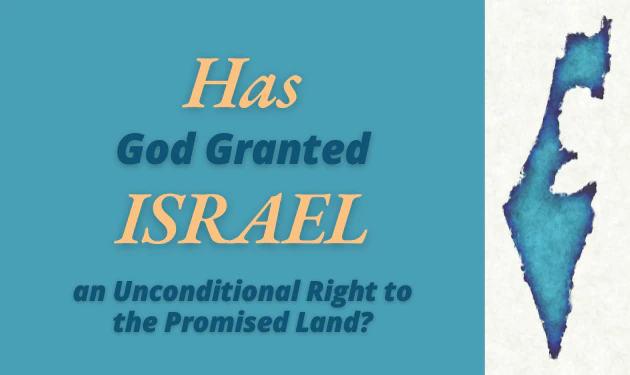Question
The Jewish people claim that God has promised them the Holy Land, and as such, the Palestinians have no right to the land. Is this true, and does this not cause injustice in the world?
Answer
The Bible does not grant the Israelites/Jews an unconditional right to the promised land. While the Hebrew Bible affirms that God promised the land to Abraham (pbuh) and his descendants, this promise is repeatedly framed within a covenantal structure that emphasises moral and religious obedience. In Genesis 12:7 and 15:18, God declares that Abraham’s offspring will inherit the land. Yet, the unfolding narrative in the Pentateuch makes clear that the actual possession and continued dwelling in the land depend upon Israel’s faithfulness to God’s commandments. This conditionality is most explicitly articulated in Deuteronomy 28 and Leviticus 26, where blessings are promised for obedience and curses—including exile and the loss of the land—are warned in the case of disobedience. The Deuteronomic covenant asserts that if the Israelites do not remain faithful, they will be uprooted and scattered among the nations.
This theological theme is echoed throughout the prophetic literature. Prophets such as Jeremiah (pbuh) and Ezekiel (pbuh) emphasise that the land is not a guaranteed possession but a sacred trust, which can be revoked when the people engage in idolatry, injustice, and disregard for divine law. Jeremiah, for instance, declares that only if the people amend their ways will they continue to dwell in the land (Jeremiah 7:3-7), while Ezekiel warns against the presumption of entitlement in the absence of righteousness (Ezekiel 33:24–26). These texts consistently portray exile as a divine response to covenantal breach, not merely a political misfortune.
In the New Testament, Jesus (pbuh) intensifies this covenantal theology by shifting the focus from ethnic and territorial claims to ethical and spiritual qualifications. He challenges the assumption that biological descent from Abraham (pbuh) guarantees divine favour or inheritance. In John 8:39, Jesus states, “If you were Abraham’s children, you would do what Abraham did,” emphasising that true descent is defined by moral continuity, not bloodline. Likewise, in Matthew 21:43, he warns that “the kingdom of God will be taken away from you and given to a people producing its fruits,” further decoupling divine inheritance from ethnic identity. Notably, Jesus (pbuh) does not advocate for a political or territorial restoration of Israel. Even when asked about the restoration of the kingdom to Israel (Acts 1:6–7), he redirects the question, indicating that such matters lie within God’s sovereign timing and are not central to his mission.
Overall, both the Hebrew Bible and the teachings of Jesus (pbuh) affirm that Jewish entitlement to the land is not absolute or permanent by default. It is contingent upon covenantal fidelity and moral responsibility. The land is a divine trust, and failure to uphold the obligations of that trust results in its forfeiture, which materialised in the destruction of the Second Temple exactly as foretold by Jesus (pbuh):
“And Jesus went out from the temple, and was going on his way; and his disciples came to him to show him the buildings of the temple. But he answered and said unto them, ‘You see all of these things, do you not? Truly I say unto you, there shall not be left here one stone upon another, that shall not be thrown down’” (Matthew 24:1-2).
Jesus (pbuh) furthers this idea by universalising the criteria for divine inheritance, locating it in ethical transformation rather than national or ancestral privilege.
Thus, according to both the Hebrew Bible and the teachings of Jesus, Israel’s claim to the land is not unconditional. The covenant entails responsibility, obedience, and righteousness. Jesus furthers this principle by declaring that divine inheritance belongs to those who bear spiritual fruits, not simply those of a particular lineage or national identity. The fact is that when the Jewish people rejected Jesus (pbuh) as the Messiah and also the Prophet Muhammad (pbuh), they no longer have an unconditional right of ownership to the Holy Land.
I hope this helps.
Mushfiq Sultan
Al-Mawrid








